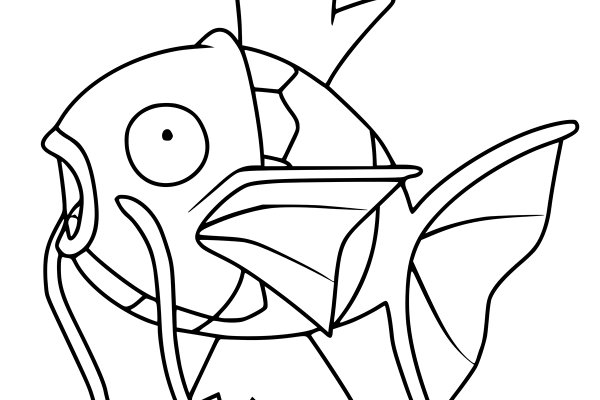Кракен даркнет площадка ссылка

Человек замыкается в себе, избегает общения с родственниками и прежним окружением. Фото амфетаминового наркомана Внешний вид амфетаминового наркомана претерпевает серьезные изменения. Альтернативные названия амфетамина Спид Спиды Скорость СК Так выглядит амфетамин Эффект от амфетамина Наркотик оказывает сильное стимулирующее действие на организм. Общий зал для групповой работы. Запрещен в свободном обороте в России. КАК смотивировать зависимого купить НА лечение Что такое амфетамин? Развивается герпес, зубы выпадают. Как бросить амфетамин Амфетамин синтетический наркотик с выраженным токсичным действием. Третья. Печень На фоне хронической амфетаминовой интоксикации у человека развивается цирроз печени. Некоторые даже думают, что это одно и то же вещество. Информационные занятия. До прибытия бригады врачей нужно: проверить пульс и дыхания (при их отсутствии начать делать искусственную вентиляцию легких и непрямой массаж сердца обеспечить доступ свежего воздуха; положить пострадавшего на бок, проверить, не запал ли у него язык, ослабить одежду; не давать никаких лекарств. Панкова. Виванс, или Лиздексамфетамин. По причине ярко выраженных психоактивных свойств амфетамины стали наиболее распространенным видом наркотиков во всем мире. Иванца. Подобный эффект может сохраняться до 12 часов, затем он постепенно снижается. Из-за этого наблюдается перегрев и обильное потоотделение. Метамфетамин кристаллическое соединение, хорошо растворяющееся в воде и за счет этого быстрее проникающее в головной мозг. После того, как действие наркотического вещества прекращается, наркоман ощущает усталость, вялость и раздражение (отходняк). Однако и жить без него больной уже не может. Метамфетамин действует мягче, но сильнее. Необходимо отказаться от приема наркотика как можно раньше. Некоторые наркоманы применяют одну дозу в 100 мг и через 3 часа вдвое меньшую. Его можно было свободно купить в аптеке. Спасибо! Глазные яблоки у амфетаминового наркомана красные. Мет вызывает наркотический эффект быстрее амфетамина. Поговорить с экспертом 7 (903) или - Попросить нас перезвонить Δ Последствия приема амфетамина При длительном употреблении амфетамина происходят патологические изменения во всем организме. Она не превышает 5 8 лет с момента начала регулярного употребления и развития зависимости. Амфетамин представляет собой вещество, которое стимулирует центральную нервную систему, вызывают чувство бодрости, подъема сил и концентрации внимания. Фосфаты, сульфаты и гидрохлориды заядлые наркоманы часто употребляют внутривенно. Его давали солдатам для подавления страха, усталости и повышения выносливости организма во время голода. Он общается с подозрительными людьми и компаниями, ведет себя странно. Он может быть очень общительным, веселым и активным, затем резко снижается настроение, пропадает желание общаться и работать. Чистый амфетамин Это однородный порошок белого или бежевого цвета. М. Если наркоман употреблял амфетамин непрерывно в течение нескольких дней (так называемый «марафон то во время «отходняка» у него развиваются сильные галлюцинации, истерика. Продолжительность жизни зависит от частоты употребления наркотика и наличия сопутствующих заболеваний.
Кракен даркнет площадка ссылка - Мефедрон телеграмм купить
Сохраненные треды с сайтов. На iOS он сначала предлагает пройти регистрацию, подтвердить электронную почту, установить профиль с настройками VPN, включить его профиль в опциях iOS и только после этого начать работу. Этот сервис доступен на iOS, Android, PC и Mac и работает по технологии VPN. Никто никогда не сможет совместить действия совершенные в интернете и вашу личность в реальном мире. Автоматическое определение доступности сайтов. МВД РФ, заявило о закрытии площадки. Мегастрой. Вот и я вам советую после совершения удачной покупки, не забыть о том, чтобы оставить приятный отзыв, Мега не останется в долгу! Единственное, что требуется от пользователя 1 доллар за универсальную версию для всех платформ Apple. Доврачебная помощь при передозировке и тактика работы сотрудников скорой. Хорошая новость, для любых транзакций имеется встроенное 7dxhash шифрование, его нельзя перехватить по воздуху, поймать через wifi или Ethernet. Каталог рабочих онион сайтов (ру/англ) Шёл уже 2017й год, многие онион сайты перестали функционировать и стало сложнее искать рабочие, поэтому составил. Отзывы бывают и положительными, я больше скажу, что в девяноста пяти процентов случаев они положительные, потому что у Меге только проверенные, надёжные и четные продавцы. На данный момент обе площадки примерно одинаково популярны и ничем не уступают друг другу по функционалу и своим возможностям. С какой-то стороны работа этих сайтов несет и положительную концепцию. Наглядный пример: На главной странице магазина вы всегда увидите первый проверочный код Мега Даркнет, он же Капча. Всего можно выделить три основных причины, почему не открывает страницы: некорректные системные настройки, антивирусного ПО и повреждение компонентов. Одним из самых главных способов обхода страшной блокировки на сайте Меге это простое зеркало. Union, например ore или новое зеркало, то вы увидите ненастоящий сайт, так как у Mega Url правильная доменная зона. Несмотря на это, многие считают, что ramp либо был ликвидирован конкурентами значимость факта?, либо закрыт новыми администраторами значимость факта? Топчик зарубежного дарквеба.

Что такое "Гидра" и что случилось с этим даркнет-ресурсом "Гидра" это очень крупный русскоязычный интернет-магазин, в котором продавали наркотики и персональную информацию. Секрет фирмы Сомик. И если у тебя имеются несовершеннолетние дети, я рекомендую оградить их от Tor-а. Вот такое вот окошко как раз и показывает, что происходит. Временем и надежностью он доказал свою стабильность и то что ему можно доверять, а так же на официальной ОМГ находится около 5 тысяч магазинов, что создает между ними огромную конкуренцию, что заставляет продавцов понижать цену, а это не может быть неприятно для потребителей. Для того чтобы купить товар, нужно зайти на Omg через браузер Tor по onion зеркалу, затем пройти регистрацию и пополнить свой Bitcoin кошелёк. Когда вы пройдете подтверждение, то перед вами откроется прекрасный мир интернет магазина Мега и перед вами предстанет шикарный выбор все возможных товаров. OnionNet (http onionnetrtpkrc4f.onion - IRC сеть. Отойдя от темы форума, перейдем к схожей, но не менее важной теме, теме отзывов. Для начала хватит. Вот и пришло время приступить к самому интересному поговорить о том, как же совершить покупку на сайте Меге. Закрытие «Гидры крупнейшего онлайн-рынка наркотиков, а по совместительству площадки для продажи других нелегальных товаров, серьезно сказалось на ее постоянных посетителях: одни лишились привычных запрещенных веществ, а другие остались без не менее привычного заработка. И тут на помощь им приходит анонимная сеть Tor. Периодически, чаще всего во время весеннего или осеннего обострения они устраивают «крестовые походы пытаясь «очистить мир от скверны». В некоторых странах сеть Tor уже запрещена. Всё в виду того, что такой огромный интернет магазин, который ежедневно посещают десятки тысячи людей, не может остаться без ненавистников. Авторитетный Telegram-канал DrugStat, занимающийся в том числе аналитикой экономических показателей российского онлайн-рынка оборота наркотиков, подтвердил информацию о выводе основной части средств с кошельков, связанных с «Гидрой «Очень важно, что мы подтверждаем только этот факт. США и Германия объединились Операция немецких силовиков это итог расследования Германии, инициированного в августе 2021. Ведет спортивный стиль езды с постоянно настроенными настройками подвески и прочими настройками двигателя. Даркмаркет направлен на работу в Российском рынке и рынках стран СНГ. Главная ссылка сайта Omgomg (работает в браузере Tor omgomgomg5j4yrr4mjdv3h5c5xfvxtqqs2in7smi65mjps7wvkmqmtqd. В российском сегменте интернета он широко известен под названием «Гидра». Оплата за товары и услуги принимается также в криптовалюте, как и на Гидре, а конкретнее в биткоинах. Хирургический набор Простой и удобный хирургический набор дает возможность установки имплантатов AnyOne и MiNi. «Заглушка» на даркнет-сайте «Гидры» Однако нельзя не отметить, что в расследовании принимали участие и некоторые органы власти США. И самые высокие цены. Из-за него даркнет лишился целого ряда ресурсов. Для особо ленивых (или «продвинутых - CtrlC / CtrlV. One TOR зеркало http probivoz7zxs7fazvwuizub3wue5c6vtcnn6267fq4tmjzyovcm3vzyd. Продавцов. Ml - ресурс о взломе социальных сетей.п. По оценке издания «Проект за первую половину 2019 году на «Гидре» было заключено 850 тысяч сделок со средним чеком 4500 рублей. Ага, тебе туда. По дефолту архив Tor Browser Bundle просится, чтобы его распаковали на Рабочий стол. Речь идёт о крупнейшей площадке для торговли наркотиками и крадеными данными. Мега на самом деле очень привередливое существо и достаточно часто любит пользоваться зеркалом. Торговая площадка поддерживают криптовалюты Bitcoin, Monero, LTC. Файлы одинаковые - выбираем любую ссылку и качаем.
